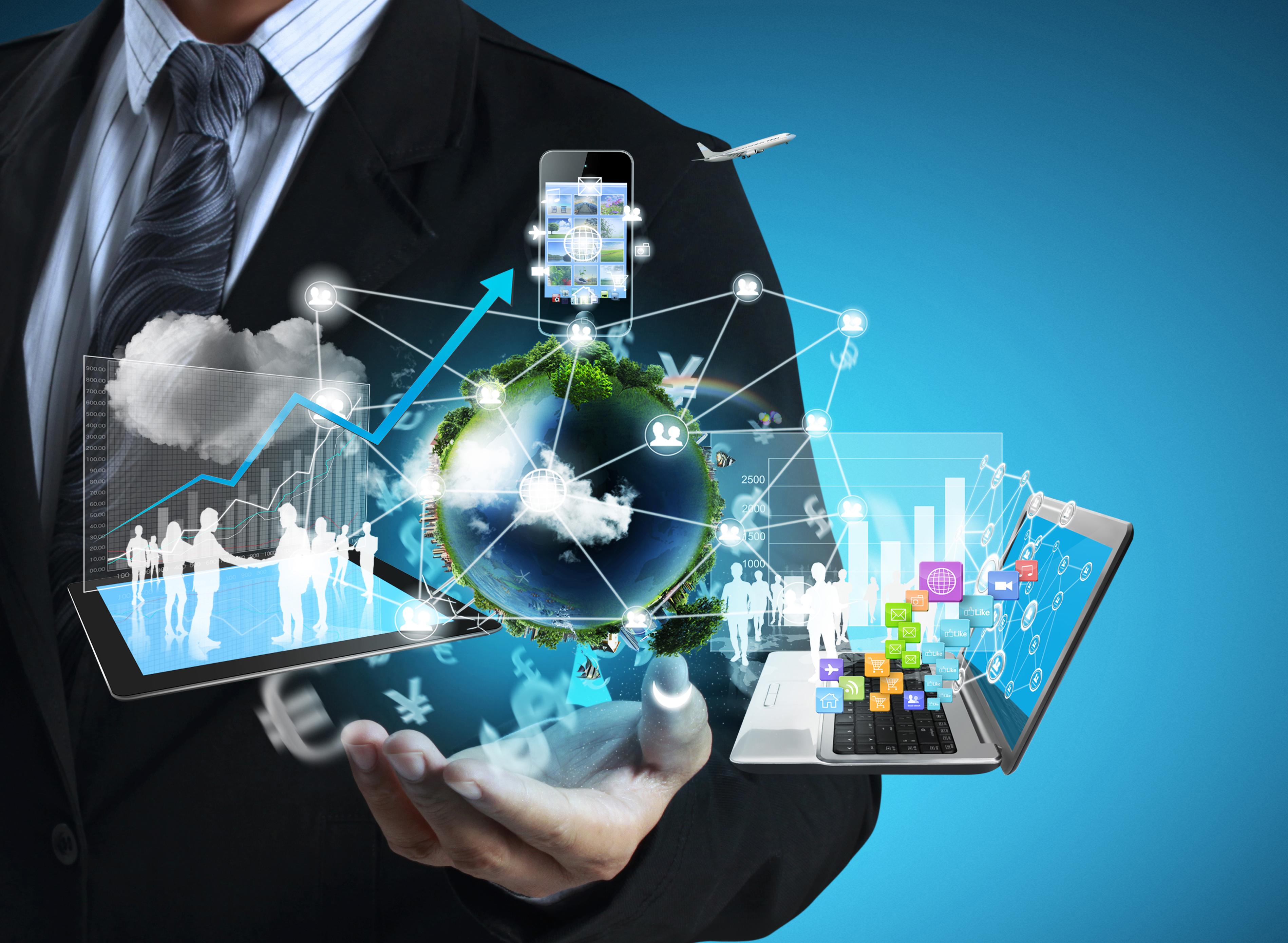
QuantumBook
Unveil a world of transformative technology and technological advancements, where innovation knows no bounds. Step into a future where the ordinary becomes extraordinary, forever changing the course of human life.
Introduction
In recent decades, technological advancements have rapidly transformed various aspects of human life. From communication to healthcare, transportation to entertainment, technology has revolutionized the way we live, work, and interact with the world. This article explores some key technological advancements that have the potential to change human lifestyle in profound ways.
Internet of Things (IoT)
The Internet of Things refers to the network of physical devices, vehicles, appliances, and other objects embedded with sensors, software, and connectivity, enabling them to collect and exchange data. IoT has already begun to reshape our homes, workplaces, and cities.
Smart home devices, for instance, allow users to control their lights, thermostats, and appliances remotely, optimizing energy usage and enhancing convenience. IoT-based solutions also have significant implications for healthcare, with wearable devices monitoring vital signs and providing real-time health data to doctors, improving diagnosis and treatment outcomes.
Artificial Intelligence (AI)
Artificial Intelligence is a field of computer science that focuses on creating intelligent machines capable of mimicking human cognitive functions. AI applications range from voice assistants like Siri and Alexa to autonomous vehicles and advanced data analytics. The impact of AI is felt across various sectors, including healthcare, finance, and education. AI-powered algorithms can analyze vast amounts of medical data, aiding in the early detection of diseases and personalized treatment plans. In education, AI-based adaptive learning platforms provide personalized education experiences, catering to individual needs and learning styles.
Robotics
Advancements in robotics have revolutionized industries such as manufacturing, logistics, and healthcare. Robots are increasingly being used to automate repetitive tasks, increasing productivity and efficiency. In the healthcare sector, surgical robots enable minimally invasive procedures, reducing patient trauma and recovery time. Additionally, robots are being developed to assist the elderly and individuals with disabilities, enhancing their quality of life and independence.
Virtual and Augmented Reality (VR/AR)
Virtual Reality and Augmented Reality technologies have the potential to transform various sectors, including entertainment, gaming, education, and training. VR immerses users in a computer-generated environment, while AR overlays digital information onto the real world.
In entertainment, VR enables users to experience immersive movies and games, blurring the line between the virtual and physical realms. In education, AR applications allow students to interact with three-dimensional objects, enhancing engagement and understanding.
Renewable Energy Technologies
The development of renewable energy technologies has the potential to revolutionize our energy systems, reducing dependence on fossil fuels and mitigating climate change. Solar and wind power technologies have become increasingly efficient and cost-effective, making renewable energy a viable alternative to traditional energy sources. The widespread adoption of renewable energy can lead to a greener and more sustainable future, with cleaner air and reduced carbon emissions.
Blockchain Technology
Blockchain technology, initially introduced with cryptocurrencies like Bitcoin, has far-reaching implications beyond finance. It is a decentralized, transparent, and tamper-resistant digital ledger that can revolutionize industries such as supply chain management, healthcare, and voting systems. Blockchain can enhance transparency and traceability, ensuring the integrity of transactions and preventing fraud. It has the potential to transform the way we conduct business and manage sensitive data securely.
5G Technology
The introduction of 5G technology brings faster internet speeds, lower latency, and increased network capacity. This advancement has the potential to revolutionize communication, entertainment, and connectivity. With 5G, downloading and streaming high-definition content will be seamless, and it will enable the growth of technologies like autonomous vehicles, smart cities, and the Internet of Things.
Biotechnology
Advancements in biotechnology have the potential to transform healthcare, agriculture, and environmental sustainability. Gene editing technologies like CRISPR-Cas9 offer the ability to modify DNA, potentially curing genetic diseases and improving crop yields. Biotechnology also plays a role in the development of alternative proteins, such as plant-based and lab-grown meat, addressing the challenges of food production and reducing the environmental impact of traditional animal agriculture.
Quantum Computing
Quantum computing holds the promise of solving complex problems at an unprecedented speed. Unlike classical computers, which process information in binary bits, quantum computers use quantum bits or qubits, which can exist in multiple states simultaneously.
Quantum computing has implications for fields such as cryptography, drug discovery, optimization problems, and climate modeling. It has the potential to revolutionize industries and lead to breakthroughs in various scientific and technological domains.
Autonomous Systems
The rise of autonomous systems, including self-driving cars, drones, and robots, has the potential to transform transportation, delivery services, and labor-intensive industries. Self-driving cars promise increased safety, reduced traffic congestion, and improved energy efficiency.
Drones are being used for tasks like package delivery, inspection of infrastructure, and aerial photography. In manufacturing, robots are becoming more sophisticated, capable of performing complex tasks with precision and efficiency.
Big Data and Analytics
The proliferation of data and the development of advanced analytics tools enable organizations to gain valuable insights and make data-driven decisions. Big data analytics can optimize business operations, improve customer experiences, and facilitate personalized marketing campaigns.
In healthcare, data analytics can uncover patterns and correlations, leading to improved patient care and preventive measures. The ability to process and analyze massive amounts of data has the potential to drive innovation and efficiency in various sectors.
Nanotechnology
Nanotechnology involves manipulating matter at the nanoscale, opening up possibilities for new materials, devices, and applications. It has the potential to revolutionize industries such as electronics, medicine, and energy.
Nanomaterials are being used to create stronger and lighter materials, while nanomedicine offers targeted drug delivery and precise diagnostics. Nanotechnology also holds promise in energy storage, enabling more efficient batteries for electric vehicles and renewable energy systems.
Conclusion
Technological advancements continue to shape and redefine human lifestyle in remarkable ways. The Internet of Things, Artificial Intelligence, Robotics, Virtual and Augmented Reality, Renewable Energy Technologies, and Blockchain are just a few examples of technologies that are driving significant changes.
As these advancements continue to evolve and integrate into our lives, it is crucial to consider their ethical implications, ensuring that they benefit humanity as a whole. By harnessing the potential of technology responsibly, we can create a future that is more connected, sustainable, and inclusive.
Technological advancements are reshaping the world we live in, bringing about significant changes to human lifestyle and society as a whole. The advancements discussed, including 5G technology, biotechnology, quantum computing, autonomous systems, big data and analytics, and nanotechnology, highlight the transformative power of technology.
As these advancements continue to evolve, it is crucial to navigate their impact responsibly, addressing ethical concerns, and ensuring equitable access for all. By harnessing the potential of technology wisely, we can create a future that improves our lives and addresses some of the world’s most pressing challenges.
By: Richa Raj
Write and Win: Participate in Creative writing Contest & International Essay Contest and win fabulous prizes.


